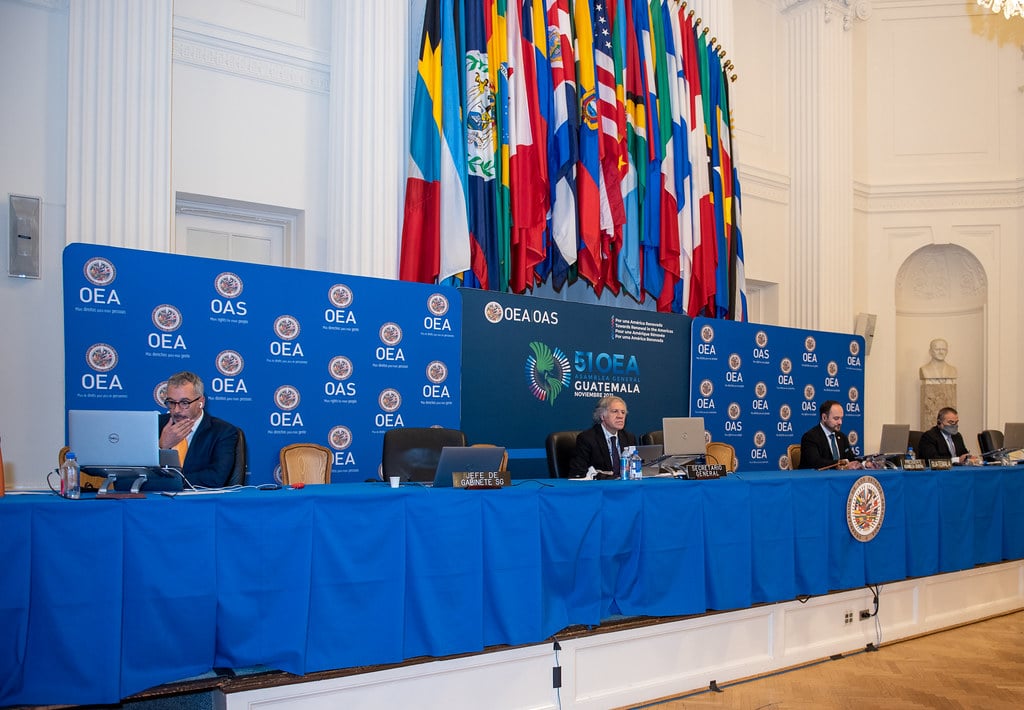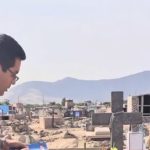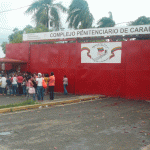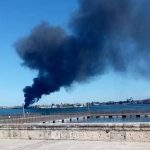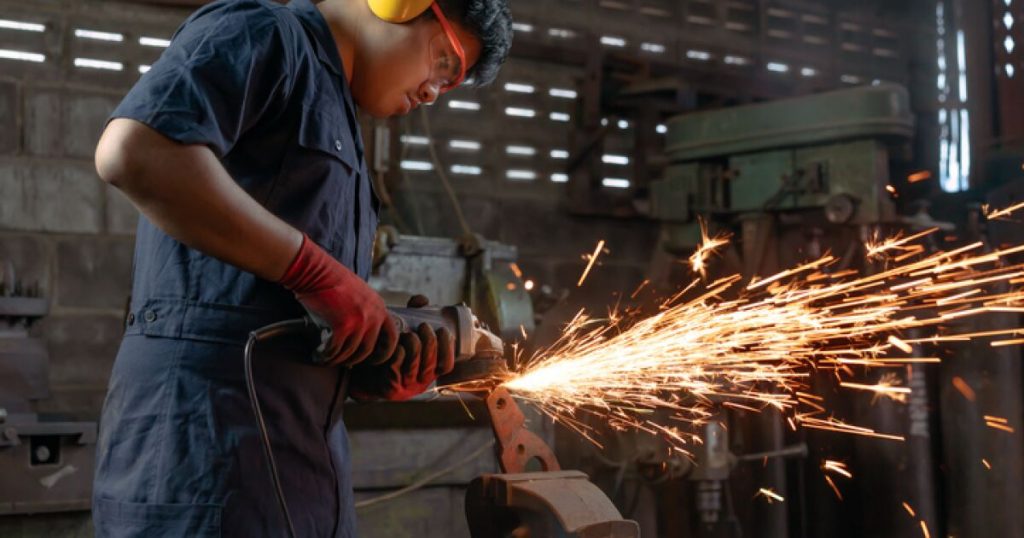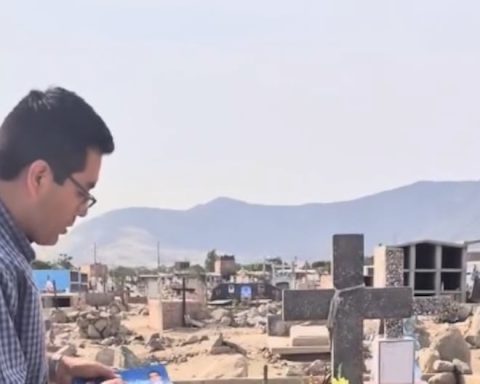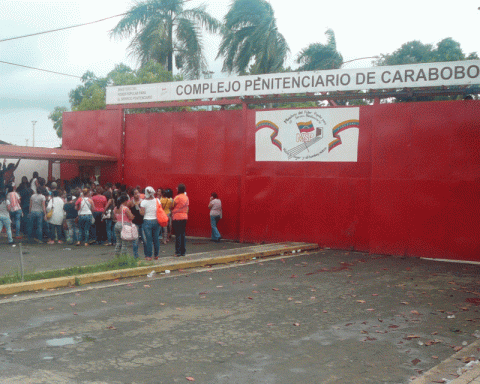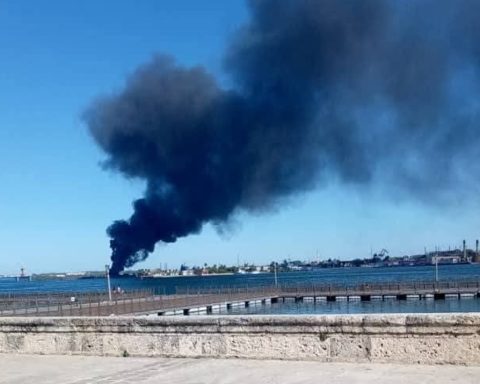The resolution of the Organization of American States (OAS) that indicates as “illegitimate” the November 7 vote in Nicaragua, in which Daniel Ortega was reelected without political competence, is “part of a process” that places more and more country close to the suspension of the regional body, according to sources consulted by CONFIDENTIAL.
The former president of Costa Rica (2014-2018), Luis Guillermo Solis, valued this Friday night that “it is significant from the diplomatic point of view” that 25 countries, out of a total of 34 that make up the OAS, have voted in favor of the resolution on Nicaragua. Since “exhausting the hemispheric instance is essential to move towards other scenarios such as the United Nations,” he explained.
The document approved in the 51st general assembly of the OAS, held between November 10 and 12, proposes “declaring that, in the obvious circumstances, the November 7 elections were not free, fair or transparent and do not have democratic legitimacy.”
It also gives 18 days for the Permanent Council to carry out a “collective assessment” of the country’s situation, “in accordance with the OAS Charter and the Inter-American Democratic Charter,” and to “take appropriate action.” Both approaches are part of the procedures established in the body’s Charter for the suspension of a member state after it has been shown that the democratic order was broken in it.
“Collective appreciation”
Article 20 of the Democratic Charter establishes that “in the event that in a member state there is an alteration of the constitutional order that seriously affects its democratic order, any member state or the secretary general may request the immediate convocation of the Permanent Council to carry out a collective appreciation of the situation and adopt the decisions it deems appropriate ”.
The resolution demands the freedom of political prisoners, a total of 150, of whom 39 were arbitrarily detained since last May in the midst of the regime’s repressive escalation. Among them are political, civic and business leaders, most of whom were charged with “treason.”
For the former Costa Rican president, Luis Guillermo Solís, the resolution could have “financial implications” for the country if the expulsion takes place. “If Nicaragua is suspended from the organization, it means that it will not be able to receive funds from CABEI (Central American Bank for Economic Integration) and eventually from the IDB (Inter-American Development Bank). That already places the sanctions on another level and if the Renacer Law (approved by the United States) is added to that, we are facing a completely new situation ”, he added.
In four and a half years, from January 2017 to June 2021, the Government of Nicaragua has received from CABEI more than 2,289 million dollars – an average of over 450 million dollars a year – despite criticism and demands for its funding to cease due to the violent repression of Ortega and the de facto police state that tramples on human rights.
CABEI has also granted 7.11 million dollars, from October 2017 to November 2020, in non-reimbursable funds for emergency aid due to the impact of hurricanes, sanitation programs and the fight against covid-19.
A triumph of the Nicaraguan people
Former President of Costa Rica, Laura Chinchilla, described the OAS resolution as “A triumph for the Nicaraguan people!”But he warned that it is necessary to wait a little longer to see the conclusions of the “collective appreciation” report and thus evaluate how the majority necessary to suspend Nicaragua from the organization is being built again.
Chinchilla agreed with Solís when explaining that the “route towards the application of the Inter-American Democratic Charter” begins with the resolution on Nicaragua. For both, “it is very positive” that there is “hemispheric awareness” that what happened on November 7 in Nicaragua “cannot go unnoticed.”
The resolution was presented by the delegations of eight countries: Canada, Antigua and Barbuda, Chile, Costa Rica, Ecuador, the United States, the Dominican Republic and Uruguay. The only vote against was that of Nicaragua, seven countries abstained and one was declared absent.
According to the voting record, Mexico, Honduras, Belize, Bolivia, Dominica, Saint Vincent and the Grenadines and Saint Lucia abstained, while the country that was “absent” was Saint Kitts and Nevis.
The most striking turn was that of Argentina, although it declared itself concerned about an anticipated condemnation of the Central American country, it voted in favor of the resolution, when in previous votes it abstained. Guatemala also modified its position of abstention from condemning the Ortega regime, declaring the elections illegitimate.
The representative of the Government of Daniel Ortega to the OAS, Michael Campbell, described the resolution as an attack “on democracy” and initially focused his criticism on the OAS, of whom he said was not “our Supreme Electoral Council”, referring to the authorities elections controlled by the ruling party.
A former Nicaraguan diplomat, who requested anonymity for security reasons, considered that the OAS resolution is “an important achievement for the cause of democracy in Nicaragua.” Since it allows “to refer the matter to the Permanent Council again,” since the Ordinary Assembly cannot suspend a country. “That can only be done by an Extraordinary Assembly,” he said.
The Assembly resolution “is aimed at correctly channeling the process that seeks the suspension of Nicaragua, in the event that such is the decision of the 25 States that voted in favor of this resolution,” said the former diplomat. In addition, it determines with great clarity two very important things: “To declare that the November 7 elections do not have democratic legitimacy; and conclude that based on the OAS Charter and the Democratic Charter that democracy in Nicaragua has been seriously undermined by the government, ”he added.
Authorities cannot be recognized either
For Alexa Zamora, from the Political Council of the Blue and White National Unity (UNAB), the OAS resolution is “extremely positive”, since it openly states “that it is impossible to recognize the result of the November 7 vote” and therefore “indirectly they say that they cannot recognize the authorities who have been elected from them.”
Zamora values that this resolution will limit Ortega’s “room for maneuver” at the international level and the access he may have to funds from the international community. However, he warns that internally his regime will intensify the repression against those who are considered opponents.
“Since November 6 there has been an increase in the siege and political violence, that was mentioned by Urnas Abiertas in his report,” Zamora recalled. Also, this Friday four councilors from Ciudadanos por la Libertad (CxL) were detained and “probably the repression against territorial leaderships will increase,” he added.
The resolution approved at the OAS regrets that the Ortega regime has ignored the efforts of the international community to help the country overcome the crisis. In the organization, a working group was even created since August 2018, five months after the crisis caused by the repression against thousands of protesters who called for a change of government, dissatisfied with Sandinismo, broke out.
